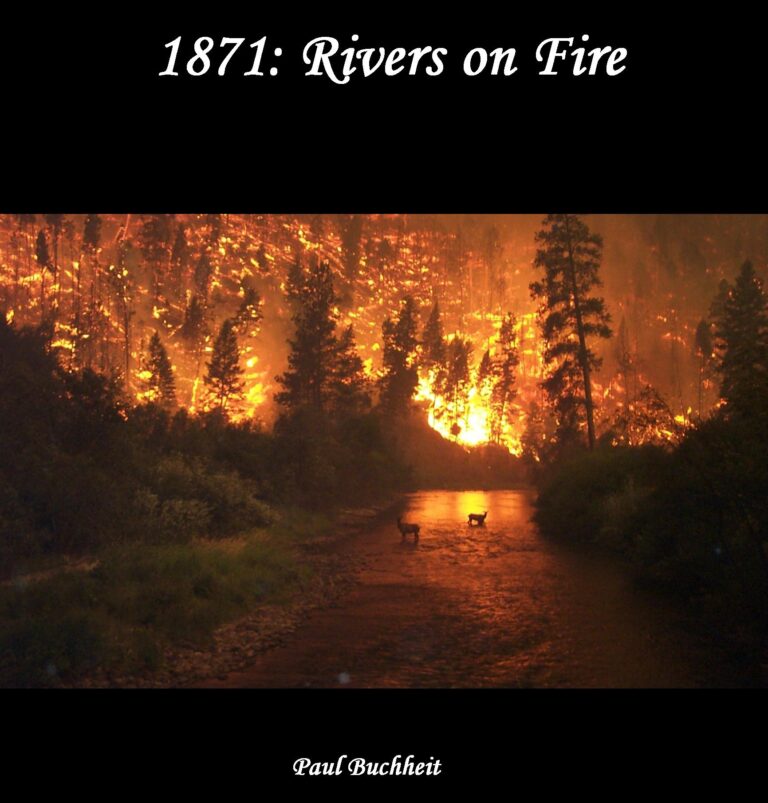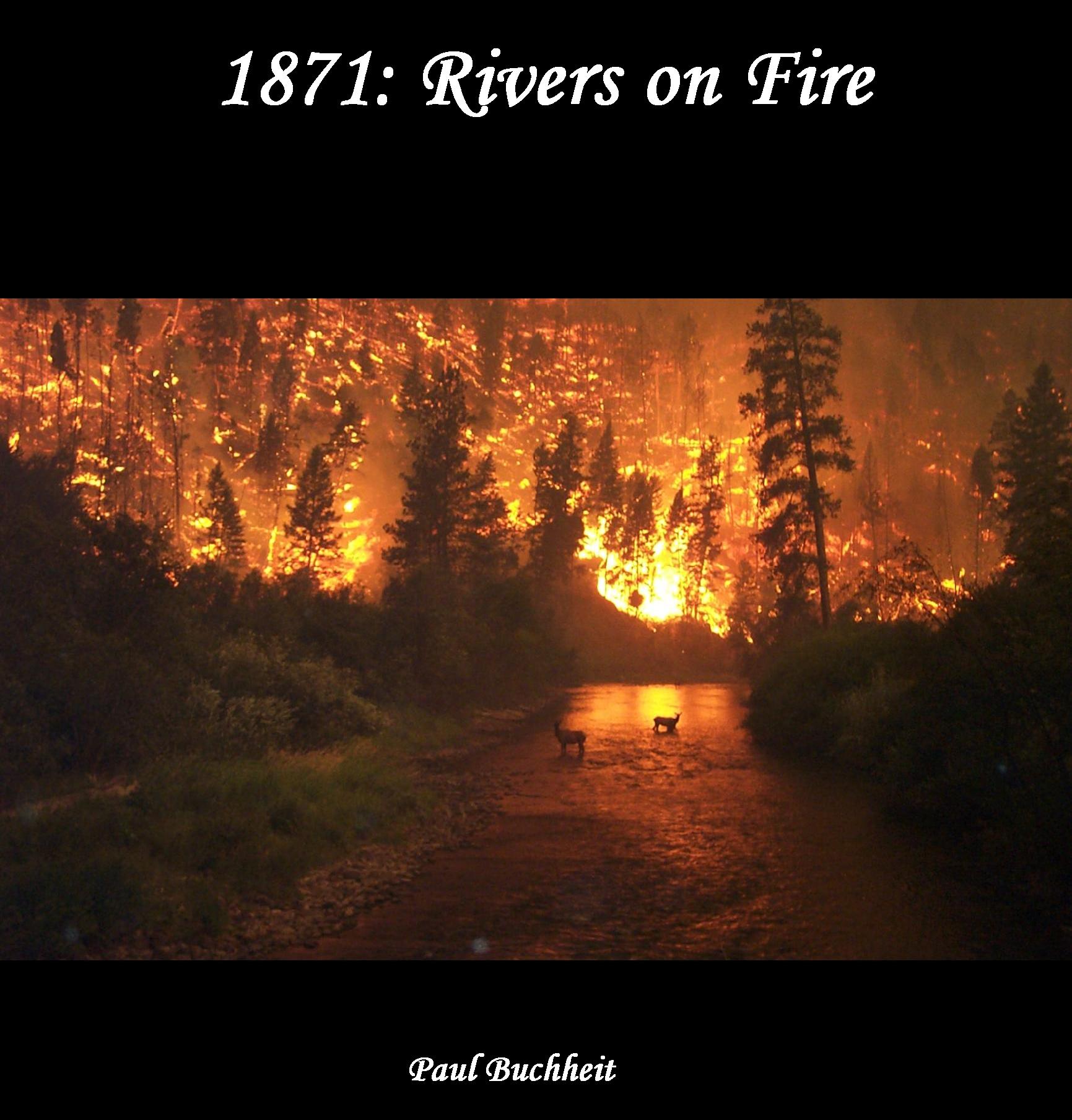1871 RIVERS ON FIRE starts with the story of Liz and Robert, two neuroscience researchers who met in King’s College, London, in the Spring of 1869 and fall deeply in love owing to their many shared interests. Soon, they decide to get married. Two years later, they travel to Chicago for an academic conference. Everything goes well until two unfortunate incidents force Robert to go on a six-week job to the isolated town of Peshtigo in Wisconsin. With Robert away, Liz continues to work and bring some normalcy to their situation. When the fire breaks out in Peshtigo she worriedly awaits Robert’s next letter. What happens to Robert and Liz eventually? Do the bonds of love and the milestones of industrial progress survive this inferno?
1871 RIVERS ON FIRE has three stories. The first is the near-ideal relationship between Liz and Robert. Evidently, they are well-suited for each other. They work in the same field, have the same outlook on life, and have profound love and respect for each other. The second story follows the scientific and industrial progress in America during the 19th century observed through their eyes during their travels. The third storyline traces the beginning and aftermath of the Great Chicago Fire, which devastated homes and lives and until today remains one of the deadliest forest fires in American history. Although the three stories are interconnected, it’s Robert and Liz’s relationship and the events around the fire that shine. There is a tenderness, and a depth of connection so rare that it’s impossible to not feel for them. When they are invited for a neuroscience conference in Chicago, they are only too happy to embark on a “cross-country journey on the new transcontinental railroad, to behold the grandeur of the great plains and the Rockies, to savor the lush greenery of the fruit-growing valleys of northern California, and to experience the frenzy of the Pacific coast trading sites in the aftermath of the gold rush.”
This forms the turning point in the novel, when things are set into motion (pun intended). Through the train journey, author Paul Buchheit chronicles the vast and fascinating industrial, modernizing changes sweeping across America through snapshots of railroad workers and local people they meet along the way. The narrative, thus far written in a rational, journalistic fashion but with an upbeat, happy tinge, starts shifting in the latter half with Robert having to go to work in Peshtigo and the fire breaking out. There is no word from Robert for a long time and Liz travels to Peshtigo to look for him. This is, perhaps, the most poignant part of the book, where emotion, rather than observation, begin driving the plot. These pages portray a heart-wrenching picture of the terrible landscape of loss and grief left behind after the fire. Liz’s agony is palpable as she navigates the alternate highs and lows of hope and fear seeking news of Robert.
In 1871: RIVERS ON FIRE, Paul Buchheit has crafted an engaging, heartwarming and well-researched story of evolution: that of science, relationships, a people, and a nation.
~Swati Nair for IndieReader


